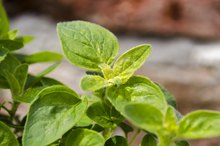What does fact checked mean?
At Healthfully, we strive to deliver objective content that is accurate and up-to-date. Our team periodically reviews articles in order to ensure content quality. The sources cited below consist of evidence from peer-reviewed journals, prominent medical organizations, academic associations, and government data.
- BMC Complementary and Alternative Medicine: Anthelmintic and Relaxant Activities of Verbascum Thapsus Mullein
- BMC Complementary and Alternative Medicine: Anthelmintic and Relaxant Activities of Verbascum Thapsus Mullein
- Journal of Ethnopharmacology: Biological Activity of Common Mullein, a Medicinal Plant
- Journal of Ethnopharmacology: Biological Activity of Common Mullein, a Medicinal Plant
- Evidence-Based Complementary and Alternative Medicine: What's in a Name? Can Mullein Weed Beat TB Where Modern Drugs Are Failing?
- Evidence-Based Complementary and Alternative Medicine: What's in a Name? Can Mullein Weed Beat TB Where Modern Drugs Are Failing?
- Phytotherapy Research: Common Mullein (Verbascum thapsus L.): Recent Advances in Research
- Phytotherapy Research: Common Mullein (Verbascum thapsus L.): Recent Advances in Research
The information contained on this site is for informational purposes only, and should not be used as a substitute for the advice of a professional health care provider. Please check with the appropriate physician regarding health questions and concerns. Although we strive to deliver accurate and up-to-date information, no guarantee to that effect is made.
What Are the Benefits of Mullein Leaf?
Mullein leaves come from the flowering mullein plant, scientifically known as Verbascum thapsus L. Although modern medical research on the effectiveness of mullein is lacking, it has been used in traditional medical systems for many purported benefits, especially for ailments involving the respiratory tract 5. The only modern research on mullein that has been done was in test tubes, so its benefits for the human body have not been confirmed.
Expectorant Properties
According to a study published in "Evidence-Based Complementary and Alternative Medicine" in 2011, mullein leaf is traditionally used as an expectorant because it helps expel mucus from the chest 24.** Its expectorant and anti-rheumatic properties cause you to cough and expel mucus from the lungs and throat. It also lubricates your lungs and throat membranes while reducing swelling, which can help alleviate irritation. Mullein has been traditionally used to remedy bronchitis, asthma, croup, whooping cough, pneumonia, asthma and tuberculosis.
- According to a study published in "Evidence-Based Complementary and Alternative Medicine" in 2011, mullein leaf is traditionally used as an expectorant because it helps expel mucus from the chest 2.
Bacteria and Parasites
Cough Expectorant Home Remedies
Learn More
A study published in the "Journal of Ethnopharmacology" in 2002 tested the anti-bacterial activity of mullein leaf extract 3. The study found that mullein has anti-bacterial activity against Klebsiella pneumonia, E. coli, and Staphylococcus aureus and epidermidis -- two types of bacteria found in the lungs and on skin. Another study, published in "BMC Complementary and Alternative Medicine" in 2012, found that mullein leaf extract also kills roundworms and tapeworms in vitro 24.** These anti-bacterial and anti-parasitic activities have not been tested in humans, however.
Potential Benefits
The same study published in 2012 found that mullein leaf has anti-tumor capabilities. This was only seen in test tubes, however, and there hasn't been research done on the anti-cancer activities of mullein in humans. In the study, growth of tumors induced in potatoes were inhibited by mullein leaf extract. According to the Natural Medicines Comprehensive Database, mullein has also traditionally been used for diarrhea, stomach bleeding, migraines and gout 1. But studies have not confirmed the effectiveness of mullein in treating these ailments.
- The same study published in 2012 found that mullein leaf has anti-tumor capabilities.
Safety and Precautions
Herbs That Remove Toxins or Bacterial Infections From the Body
Learn More
According to the Natural Medicines Comprehensive Database, reliable safety information on mullein leaf is lacking 1. But research has found that mullein is toxic in very large doses. Avoid taking it if you're pregnant or breast-feeding. Consult your doctor before consuming mullein if you're on any medications or using any other herbs because mullein leaf may have interactions with them.
- According to the Natural Medicines Comprehensive Database, reliable safety information on mullein leaf is lacking 1.
- Consult your doctor before consuming mullein if you're on any medications or using any other herbs because mullein leaf may have interactions with them.
Related Articles
References
- Natural Medicines Comprehensive Database: Mullein
- BMC Complementary and Alternative Medicine: Anthelmintic and Relaxant Activities of Verbascum Thapsus Mullein
- Journal of Ethnopharmacology: Biological Activity of Common Mullein, a Medicinal Plant
- Evidence-Based Complementary and Alternative Medicine: What's in a Name? Can Mullein Weed Beat TB Where Modern Drugs Are Failing?
- Phytotherapy Research: Common Mullein (Verbascum thapsus L.): Recent Advances in Research
- Mullein. Natural Medicines Database. Professional Monograph. 7/26/2018
- Riaz, M., Zia-Ul-Haq, M., Jaafar, H. Common mullein, pharmacological and chemical aspects. Revista Brasileira de Farmacognosia. 2013; 23(6), 948-959. doi:10.1590/S0102-695X2013000600012
- Sarrell EM, Cohen HA, Kahan E. "Naturopathic Treatment for Ear Pain in Children." Pediatrics 2003 111(5 Pt 1):e574-9.
- Turker AU, Camper ND. "Biological Activity of Common Mullein, A Medicinal Plant." Journal of Ethnopharmacology 2002 82(2-3):117-25.
- Turker AU, Gurel E. "Common Mullein (Verbascum Thapsus L.): Recent Advances in Research." Phytotherapy Research 2005 19(9):733-9.
Writer Bio
Karen McCarthy is a health enthusiast with expertise in nutrition, yoga and meditation. She currently studies at the Institute for Integrative Nutrition and has been writing about nutrition since 2012. She is most passionate about veganism and vegetarianism and loves to promote the health benefits of eating fruits and vegetables.









